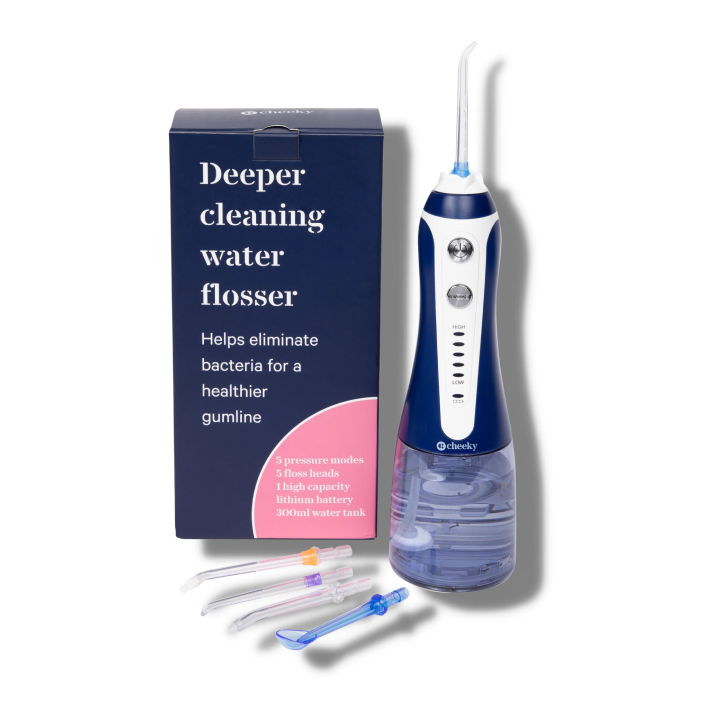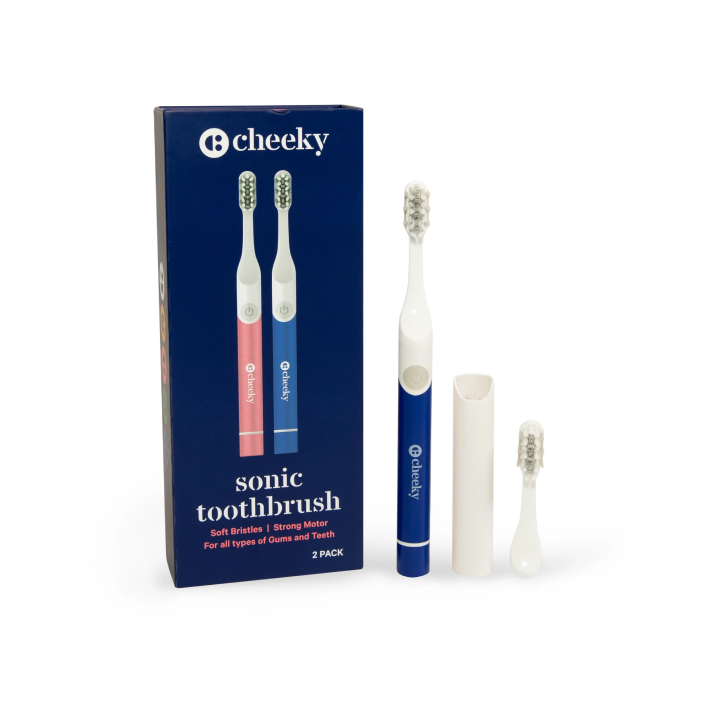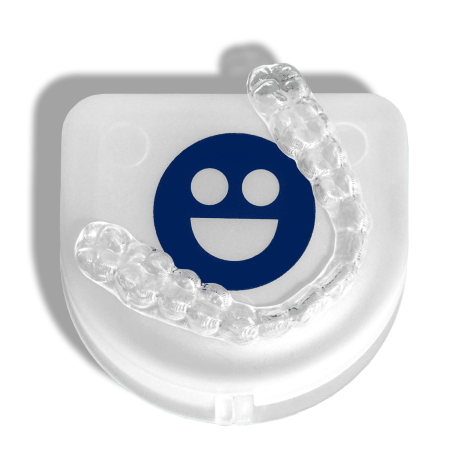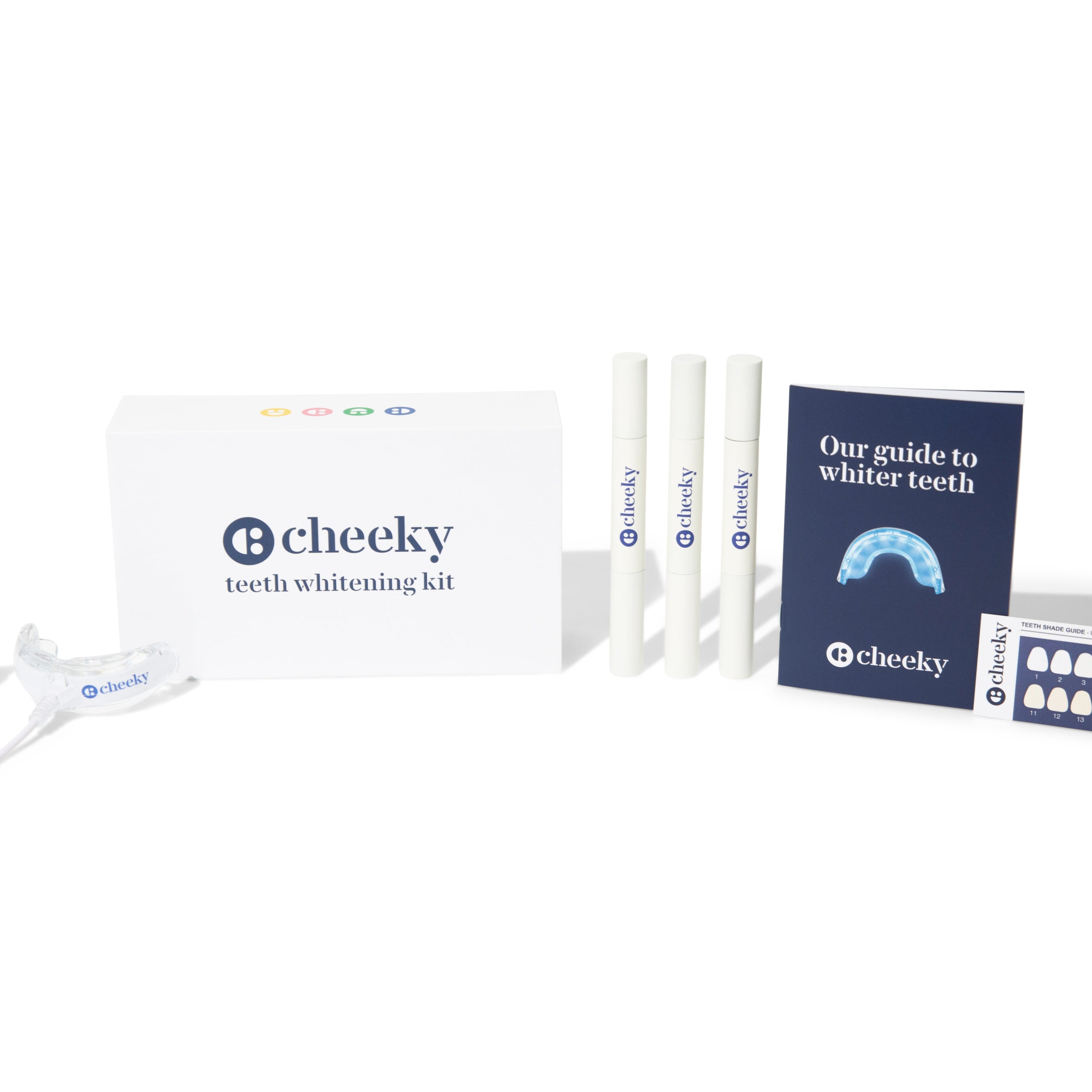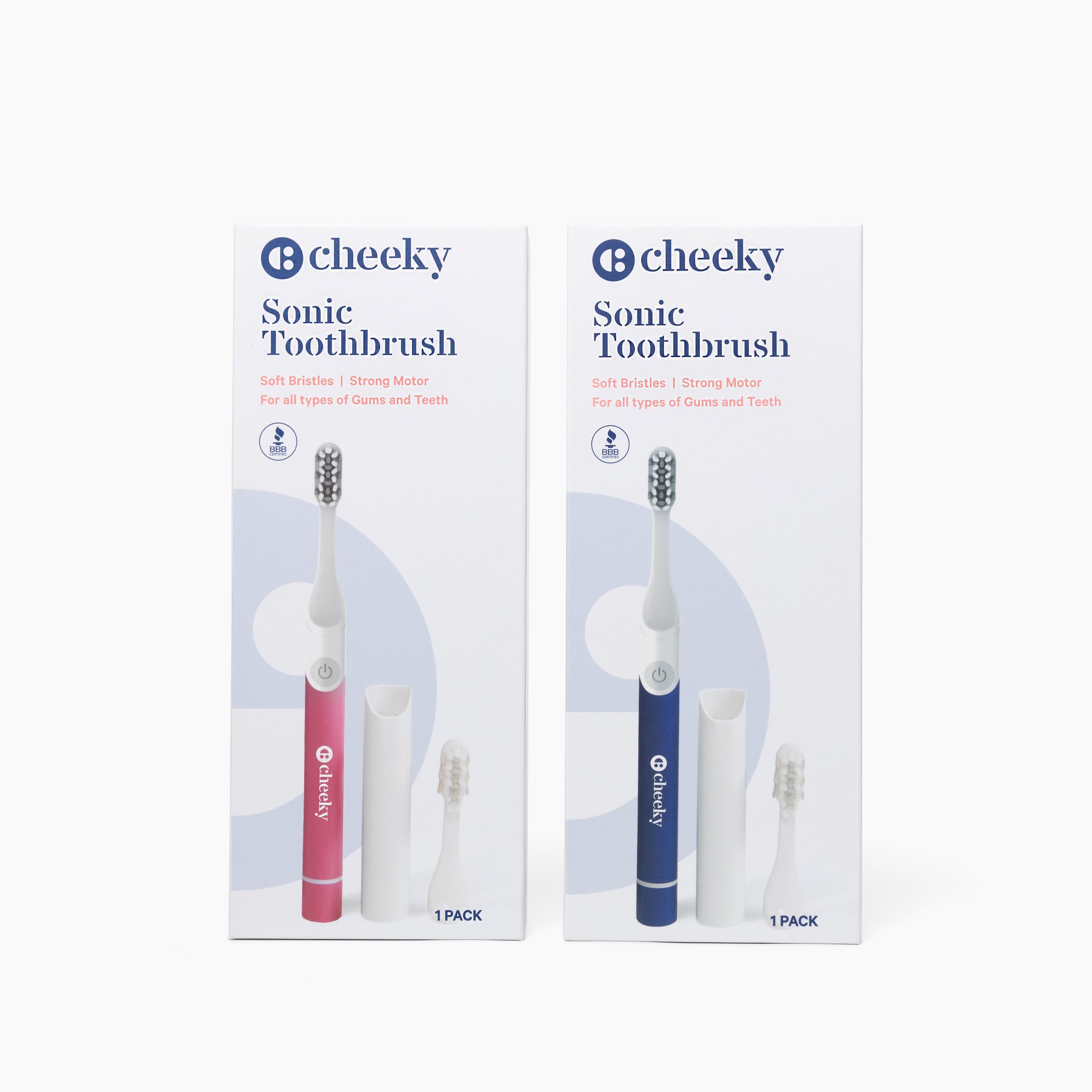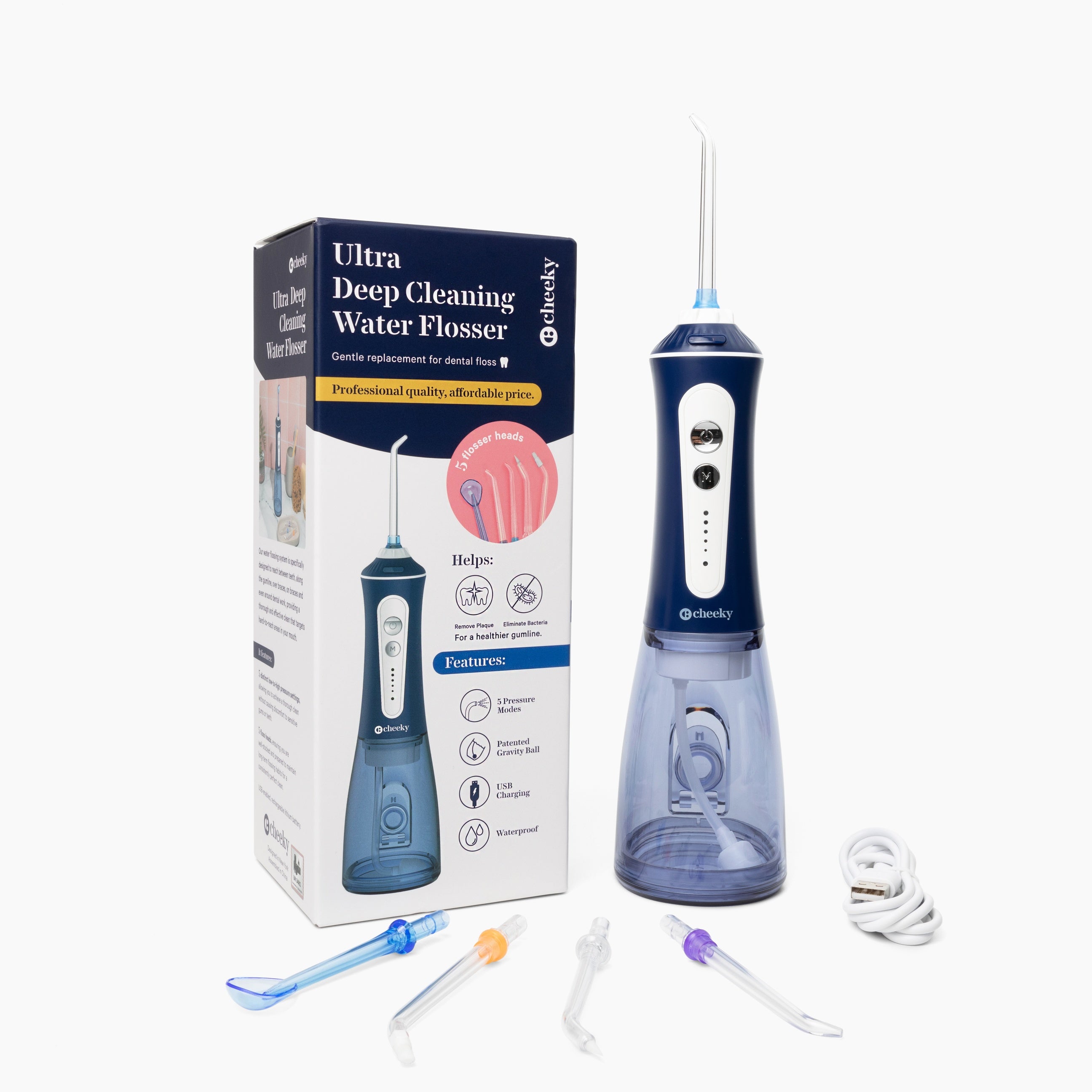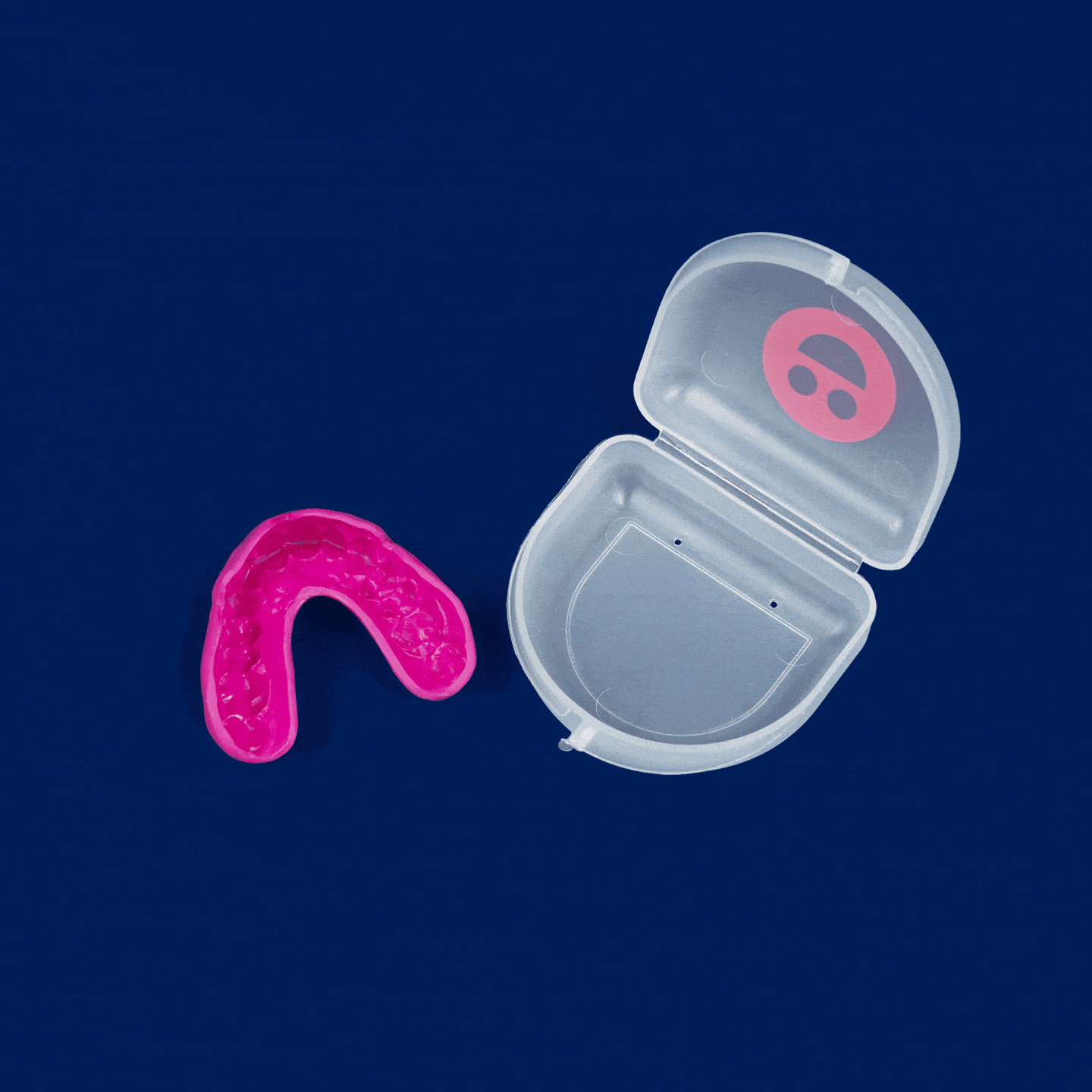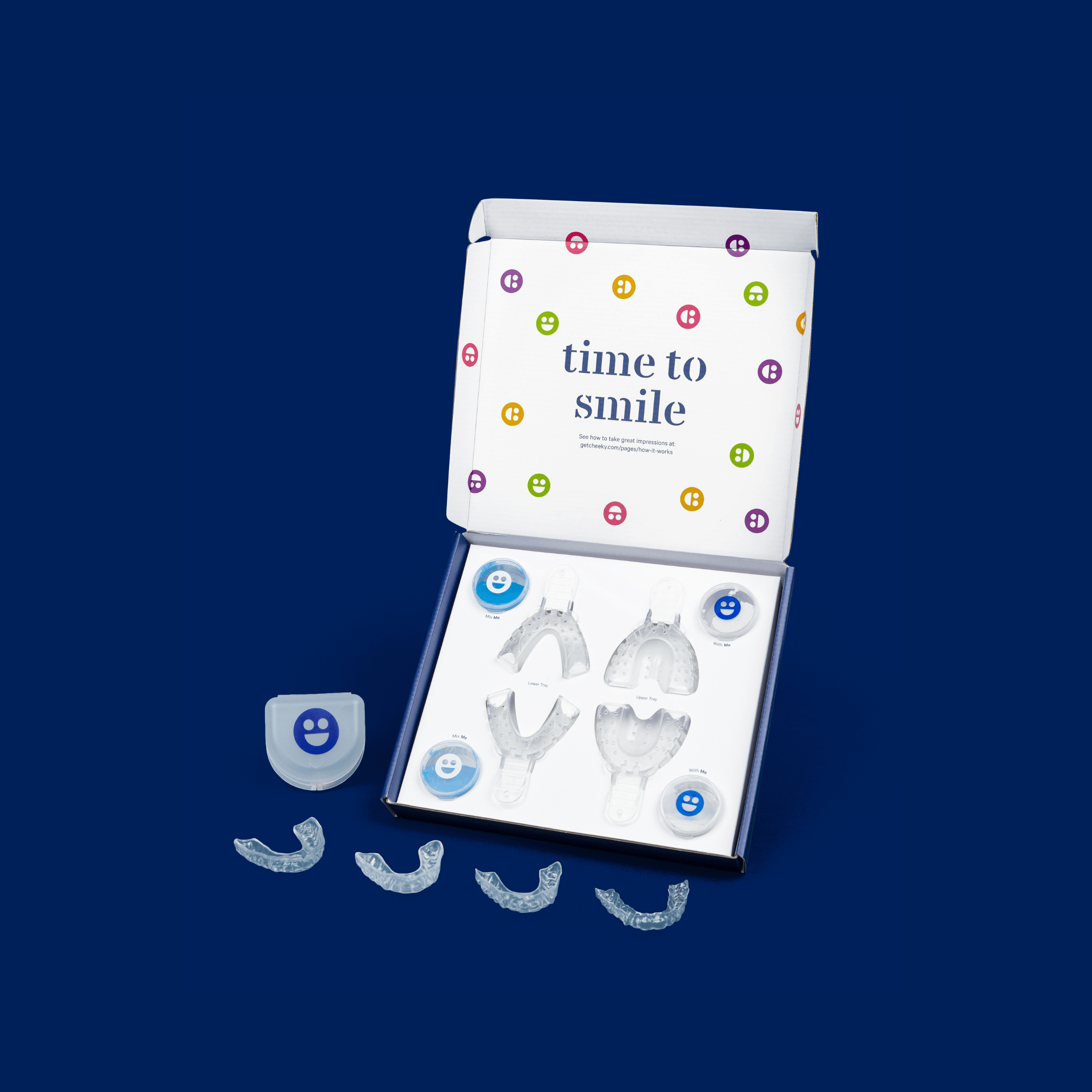How to Stop Grinding Teeth at Night: 5 Steps to Help You Get Relief
Many people may occasionally grind their teeth at night without any issues, but chronic grinding can lead to serious problems, including dental damage, headaches, and jaw pain. If you wake up every morning with jaw tension or mysterious tooth pain, it may be because of severe teeth grinding (bruxism).
You can't always stop grinding your teeth while sleeping, but there are steps you can take to minimize the overall risk of damage. The following are five helpful steps to help you control teeth grinding, relax jaw tension, reduce pain, and protect your smile.
5 Top Tips that Offer Relief From Teeth Grinding
1. Pay Attention to the Causes and Symptoms of Teeth Grinding
Understanding the causes of teeth grinding during sleep can help you identify the most effective solution. Several physical and psychological factors can contribute to teeth grinding. The following are just a few of them:
Causes and Risk Factors
-
Stress and anxiety
-
Sleep disorders (like sleep apnea)
-
Side effects of certain medications
-
Recreational drug use, caffeinated coffee, or drinking alcohol
-
TMJ disorders or misaligned jaw joints
-
Chewing on pens or other objects
-
Frequent gum-chewing habits
Symptoms of Teeth Grinding
People who grind their teeth occasionally while sleeping may not experience any noticeable symptoms. But in severe cases, you might notice the following:
-
Tight or painful jaw muscles in the morning
-
Pain in the jaw, neck, or headaches
-
Worn-down teeth or flattened biting surfaces
-
Chipped or cracked teeth
-
Sensitive teeth or signs of tooth damage
Your sleeping partner may even complain about grinding noises during the night.
The National Institute of Dental and Craniofacial Research found that severe teeth grinding can damage your enamel, aggravate temporomandibular joint disorder (TMJ or TMD), and disrupt your overall sleep quality if left untreated.
2. Use Relaxation Techniques for Stress Management
One of the biggest causes of bruxism is muscle strain and tension. That’s why you should try to relax, at least before bed. Here are a few relaxation techniques to help you wind down:
-
Meditation/Guided breaths
-
Progressive muscle relaxation
-
Warm bath at bedtime
-
Gentle jaw stretches
-
Calming melody or the sound of white noise
You can also maintain a standard routine of winding down during the night, cutting screen time an hour before bedtime, and keeping to a specific sleep schedule. This will minimize sleeping problems and support your natural rhythm.
Daily stress can build up, so take time out to write in a journal, reduce your caffeine intake, or consider visiting a therapist to help you feel calmer when you're feeling anxious or stressed. You can also reduce stress through regular exercise, which helps release nervous energy and lowers the risks associated with cardiovascular health conditions that can impact sleep quality.
3. Adjust Your Lifestyle to Reduce Teeth Grinding
There are certain habits you can change to manage awake bruxism and prevent nighttime grinding. You should avoid the following:
-
Hard snacks like nuts or ice, since they activate your jaw muscles.
-
Excessive chewing gum, which trains your jaw to clench.
-
Drinking caffeinated coffee or alcohol late at night
-
Smoking or drug use, which are known risk factors.
Try these healthier alternatives:
-
Magnesium-rich foods like leafy greens (will calm nerves).
-
Herbal teas (like chamomile) to unwind.
-
Drinking plenty of water (dry mouth can increase grinding).
You can also create a sleep-friendly environment. Use blackout curtains, keep your bedroom cool, and avoid eating heavy meals before going to bed. Poor sleep can increase muscle activity and exacerbate bruxism.
4. Use a Custom Mouth Guard
One of the most effective ways to treat teeth grinding is to wear a mouthguard at night. Also known as splint therapy, this treatment acts as a protective layer between your upper or lower teeth, absorbing the force of clenching and grinding.
For this to work, you'll need a guard that feels comfortable in your mouth. Cheeky’s Custom Night Guard is an excellent choice because it's:
-
Custom fit to your exact bite
-
So thin, you’ll forget you’re wearing it
-
Available in hard, soft, and hybrid guard options
-
Made from latex- and BPA-free materials
-
Designed to prevent chipped teeth and morning migraines
-
Covered by a 30-day money-back guarantee
You can bypass the dentist appointment completely! We ship our Dental Impression Kit directly to you. Once you’ve mailed it back, your custom night guard will be on your doorstep in 7 to 10 days. You can then set up automatic reshipments every 3 or 6 months so you never sleep in a dirty or worn-out guard.
In severe cases, explore other treatment options like Botox injections (to relax overactive jaw muscles) or muscle relaxants, but consult your dentist first.
5. Retrain Your Jaw and Track Your Progress
You can actually retrain your jaw to eliminate nighttime and daytime clenching, and break the cycle once and for all. Here are some of the daily habits you can use to retrain your jaw:
-
Press your tongue gently against the upper part of your mouth.
-
Release the jaw by closing your mouth and leaving your teeth apart.
-
Set phone reminders to check the position of your jaw.
-
Refrain from resting your chin on your hands to avoid adding more pressure.
-
Before you go to bed, try a jaw massage or hot compresses.
Keep track of your symptoms to see what’s improving and where you still need support. You can assess whether your jaw pain is less intense, your teeth are less sensitive, or perhaps ask your sleeping partner if they’re noticing fewer grinding sounds.
If you're not seeing progress or have ongoing jaw joint issues or a TMJ disorder, see a dentist. Sometimes you'll need professional help to get your bruxism treated.
When to Seek Professional Help
Since the exact cause of teeth grinding varies, most treatments focus on relieving the symptoms. Nevertheless, you need professional assistance when:
-
Your teeth are broken or loose.
-
You have severe or deteriorating jaw pain.
-
You had dental work that can mess with your bite.
-
You feel popping or clicking in your temporomandibular joint.
-
You suspect you have sleep apnea or chronic sleeping problems.
A dentist will help you understand the level of your teeth wear, make some adjustments to your bite, and prescribe some progressive measures (e.g., bite correction or orthodontics) in case any are necessary.
Frequently Asked Questions
How Do I Prevent Grinding My Teeth During Sleep?
Begin by identifying what’s triggering your nighttime teeth grinding. Some of the most common causes include stress, sleep apnea, and jaw misalignment. You can avoid damage to your teeth by using a custom-made night guard. Furthermore, making behavioral changes, such as practicing nightly relaxation exercises, improving sleep quality, and avoiding caffeine and alcohol before bedtime, can also help reduce grinding.
What Causes Grinding of Teeth During Sleep?
Certain risk factors are associated with grinding of teeth during sleep, also known as sleep bruxism. Some of the most frequent ones include everyday stress, sleep apnea, medications, and habits like chewing gum or too much caffeine. Misalignment of your temporomandibular joint or jaw joints may also predispose you to grinding of teeth during sleep.
How Do I Stop My Girlfriend from Grinding Her Teeth?
If your girlfriend grinds her teeth at night, encourage her to visit a dentist for an assessment. You can also suggest a custom-fitted mouth guard to safeguard her upper or lower teeth from wear. Help her establish a bedtime routine, minimize environmental stress, and pay attention to her sleep bruxism symptoms to find out what works.
What Can I Put Between My Teeth to Stop Grinding?
The ideal thing to wear between your teeth is a mouth guard or a mouth splint. The guards pad both young and adult teeth, minimize stress on the jaw muscles, and prevent tooth breakage. Cheeky provides custom guards designed for optimal comfort and durable protection. They're thin, BPA-free, and HSA/FSA compliant, making them effective and budget-friendly.
How Do I Stop Grinding Teeth in Sleep Naturally?
To avoid grinding teeth while sleeping naturally, prioritize stress reduction and a better sleep habit. Incorporate relaxation techniques, such as meditation, breathing exercises, or warm compresses, to help reduce stress. Avoid chewing on hard items before bedtime and cut down on stimulants like alcohol and caffeine. For added protection, couple these natural solutions with a well-fitted mouth guard.
Final Thoughts
You can regain control over your teeth grinding and begin sleeping more soundly. Here is a brief recap:
-
Be aware of the signs and risk factors.
-
Start a relaxation routine before bed.
-
Avoid hard foods and adjust your habits.
-
Use splint therapy with a quality mouth splint.
-
Retrain your jaw and stay consistent.
You can stop grinding your teeth at night and sleep more comfortably, starting today. Order your night guard from Cheeky and get dentist-quality protection for a fraction of the price.

